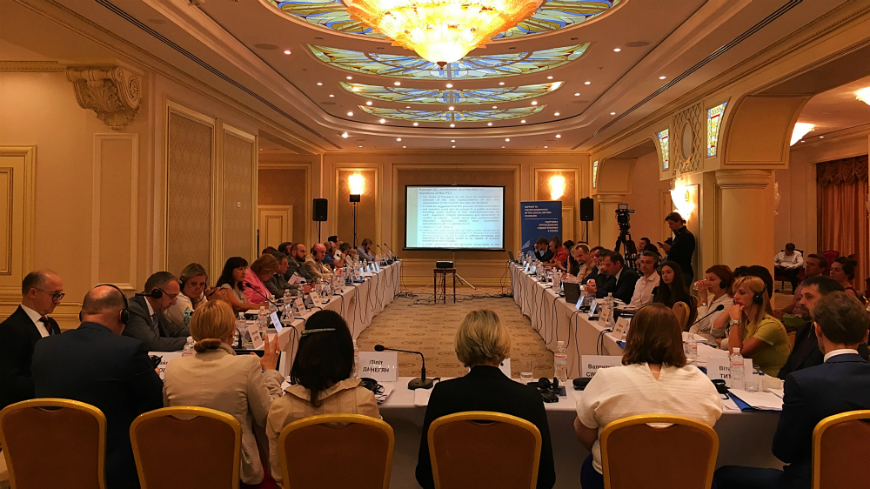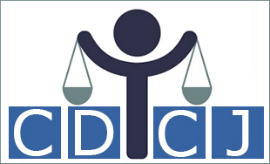On 12 June 2017, the round table “Standards of the Council of Europe concerning assessment of judges and the Rules of Procedure of the Public Integrity Council” took place in Kyiv, Ukraine. The round table was organised by the Council of Europe project “Support to the implementation of the judicial reform in Ukraine”.
The event was attended by the members of the High Qualification Commission of Judges of Ukraine, members of the Public Integrity Council, representatives of the judicial and executive branches of power in Ukraine, as well as by representatives of civil society, international organisations, by journalists.
In the course of two sessions of the event, the participants discussed the following issues:
- the criteria and the procedure for determining by the Public Integrity Council the admissibility of a judge (judicial candidate) in terms of professional ethics and integrity;
- results of the assessment by the Public Integrity Council in the format of the negative conclusion or the information note on a judge (judicial candidate).
The key-part of the round table was dedicated to the presentation of the Opinion of the Council of Europe on compliance of the Rules of Procedure of the Public Integrity Council with the standards and recommendations of the Council of Europe. Such assessment was requested by the Public Integrity Council and conducted by Ms Diana Kovatcheva, doctor of International Law and International Relations, international expert of the Council of Europe. According to the Opinion of Ms Diana Kovatcheva, the following issues need to be taken into account:
- the clarity and objectiveness of criteria for determining the eligibility of a judge (judicial candidate) in terms of professional ethics and integrity; in this respect, comments on or assessment of judicial decisions are unacceptable according to the standards of the Council of Europe;
- certain risks to the judicial independence in cases when judges are assessed by practising lawyers;
- a lack of clarity as regards the legal status of the Public Integrity Council.
Referring to the documents of the Council of Europe, Ms Diana Kovatcheva underlined that, in the course of the evaluation procedures of different types it is extremely important to exclude the factors that could challenge the independence of judges: “despite the laudable aim of ensuring high standards through a system of evaluation, it is notoriously difficult to reconcile the independence of the judge with a system of performance appraisal. If one must choose between the two, judicial independence is the crucial value.”[1] This is a basic rule which could be taken into consideration in the course of the work of the Public Integrity Council.
The full text of the Council of Europe Opinion can be found at the link .
During Ms Diana Kovacheva’s assessment of the Rules of Procedure of the Public Integrity Council, the Council of Europe project “Support to the implementation of the judicial reform in Ukraine” organised a number of consultations with members of the Public Integrity Council, members of the High Qualification Commission of Judges of Ukraine, as well as a few public discussions dedicated to the status and functions of the Public Integrity Council.
The Council of Europe project “Support to the implementation of the judicial reform in Ukraine” aims at ensuring independence, fairness and effectiveness of the judiciary by supporting Ukraine in the implementation of its justice sector reform in accordance with Council of Europe standards and recommendations.
[1] See Report on the independence of the judicial system, Part I: the independence of judges Venice Commission (2010), para. 37 and the Report on Judicial Appointments (CDL-AD (2007) 028), Venice Commission, para. 42




